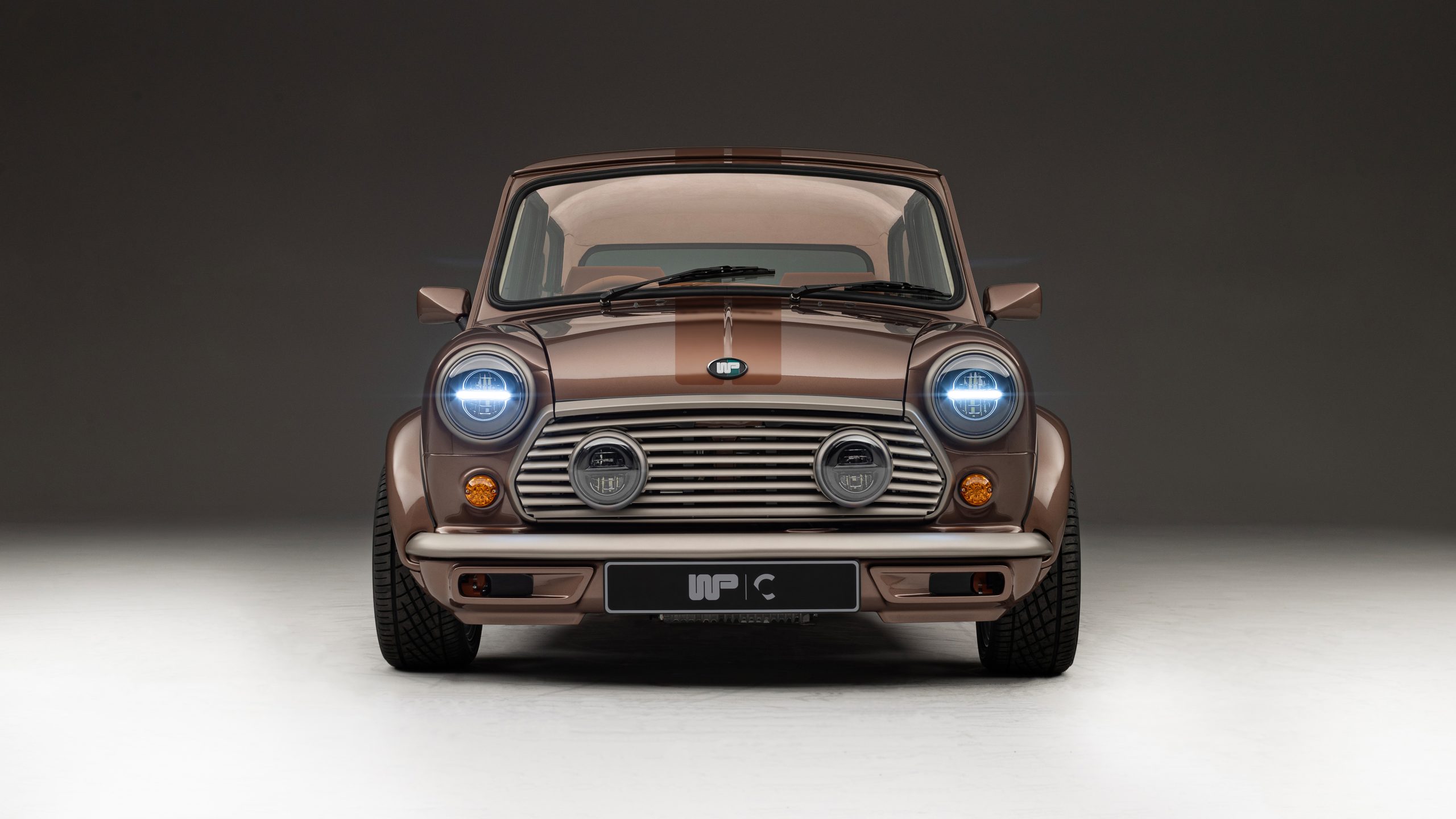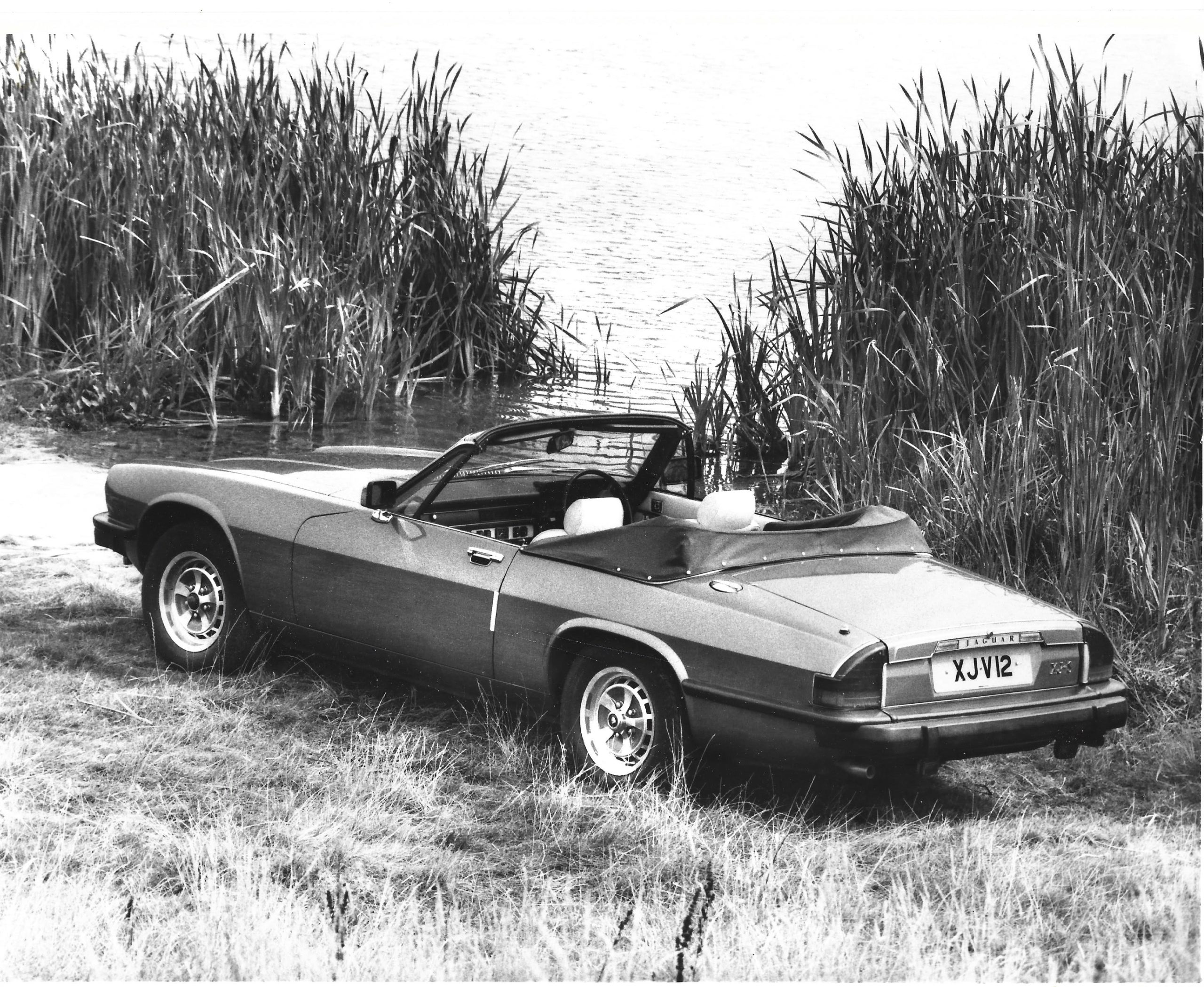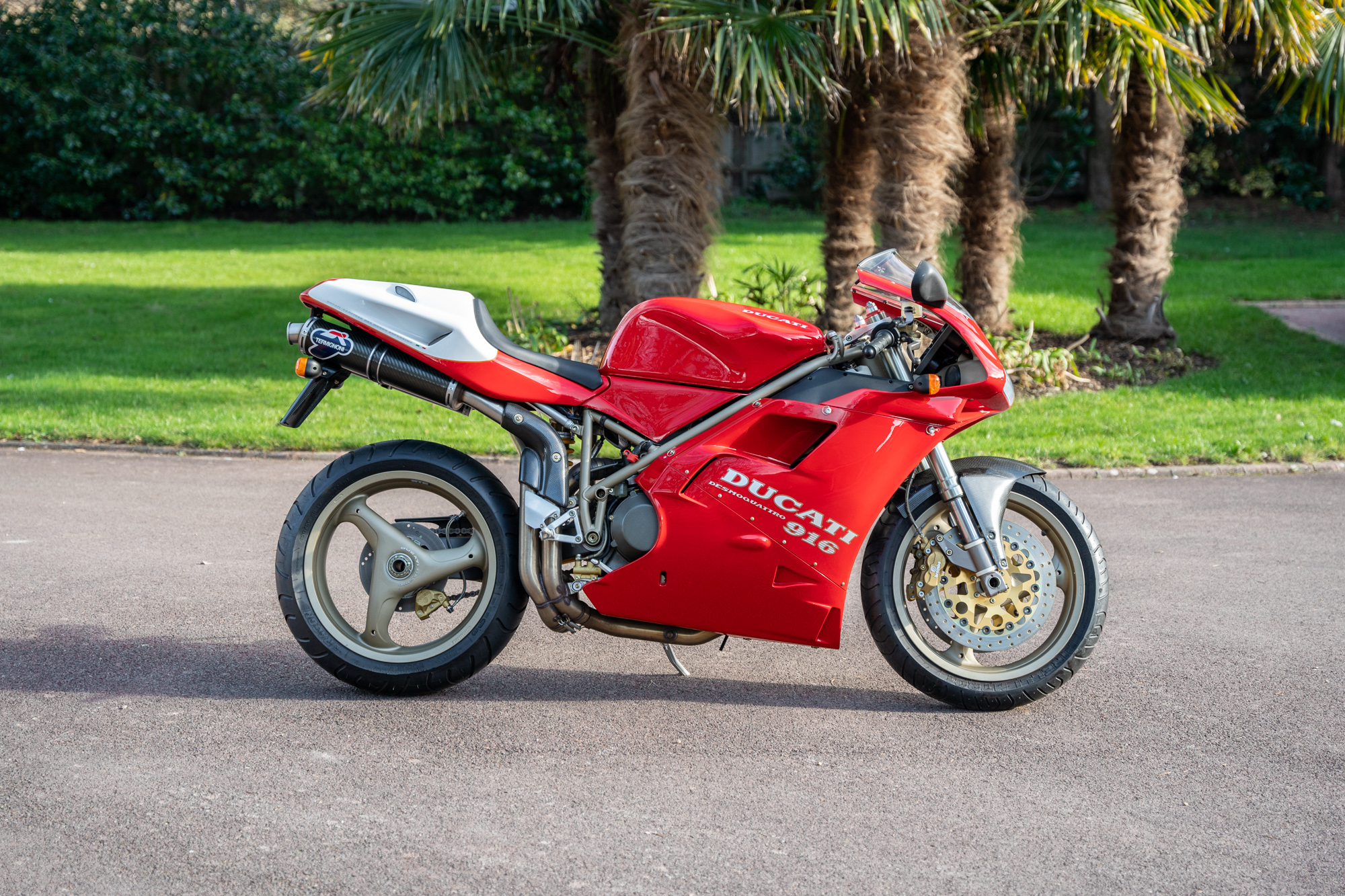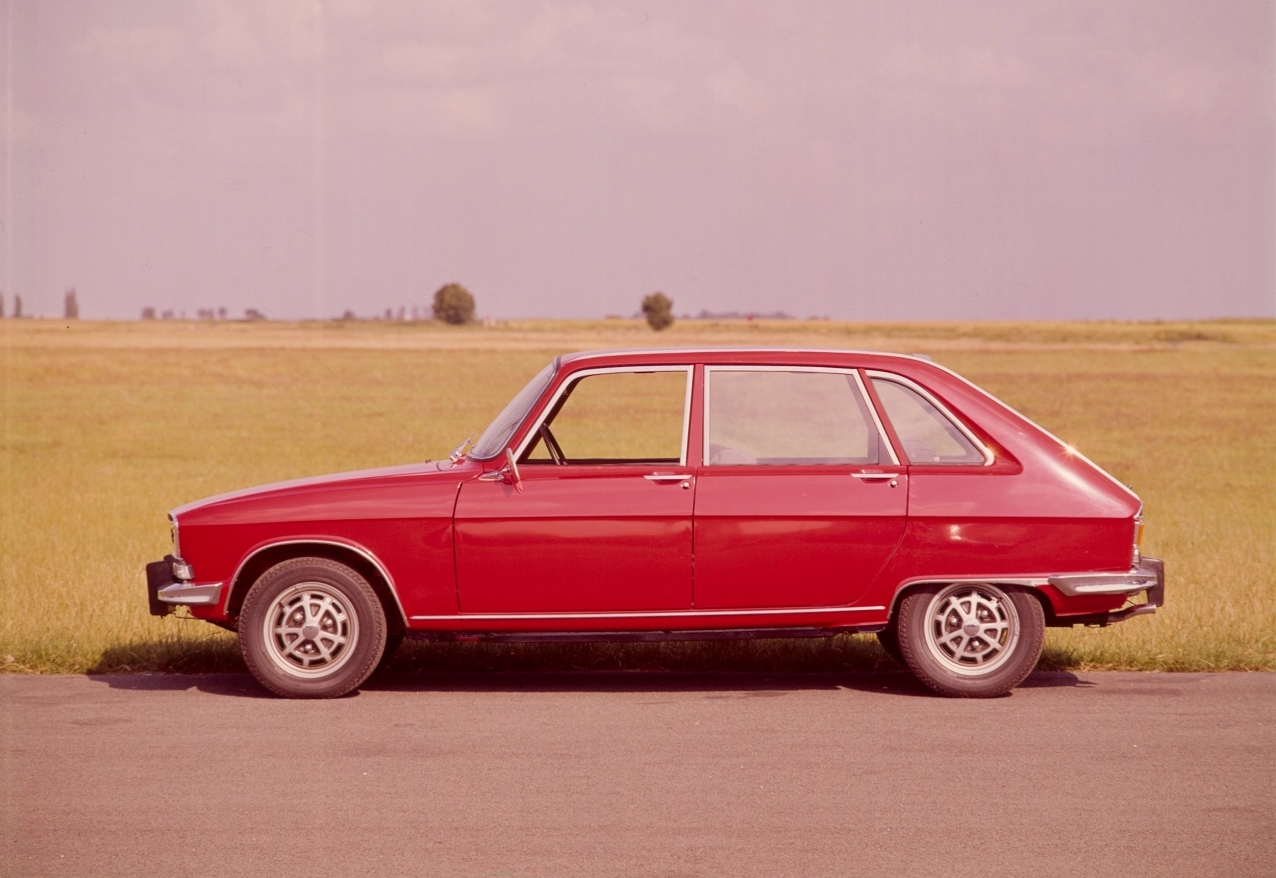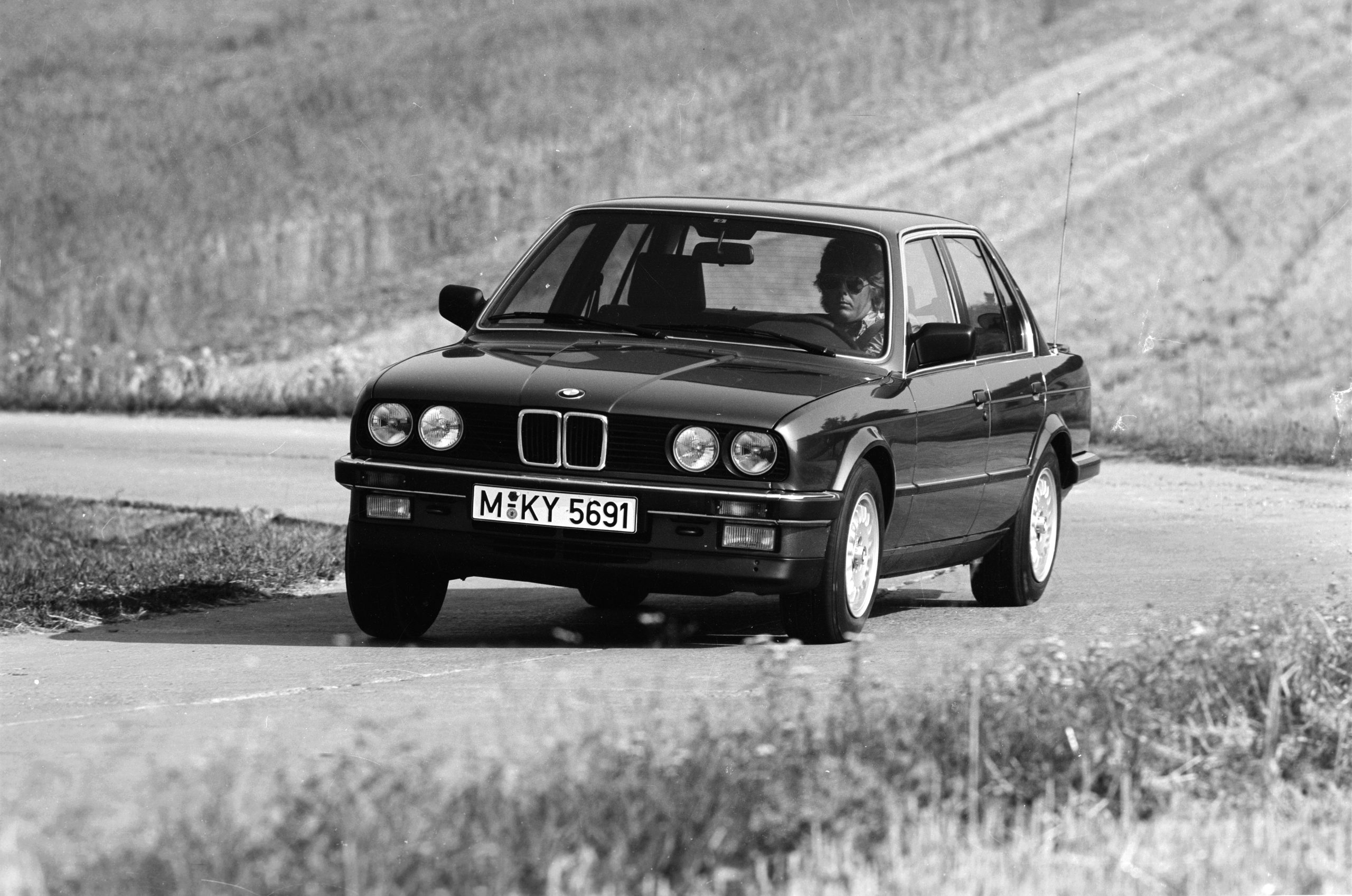Editor’s note: This story was first published in the US edition of the Hagerty Drivers Club magazine.
In most Bond films, the woman sits beside James in the passenger seat, looking at once elegant and rattled as he careers coolly down precariously narrow streets evading bad guys. Pleased as I was to be behind the wheel of the DB5 Goldfinger car, one of 25 produced as part of the Aston Martin Works continuation program, driving a $3.5 million (£3.3m) car on a narrow English country road unnerved me. Unlike the imperturbable Bond, my palms sweated on the shellacked wooden steering wheel.

The DB5 Goldfinger, built new but to the same specs as the original 900 produced from 1963 to 1965, sports modern parts made to contemporary standards. Every component, from the original Avon cross-ply tyres to the ZF five-speed gearbox, with exactly the same ratios, was reimagined using current compounds and materials.
After you deposit yourself on the grey leather-channeled seat, the metal-meets-metal thwack of the door shutting is pure 1960s. Upon starting, the 4.0-litre straight-six produces a satisfying swagger, its healthy sound strong and, in its newness, reassuring. Unlike a real antique, this car is years away from suffering the usual and worrisome maladies of age.
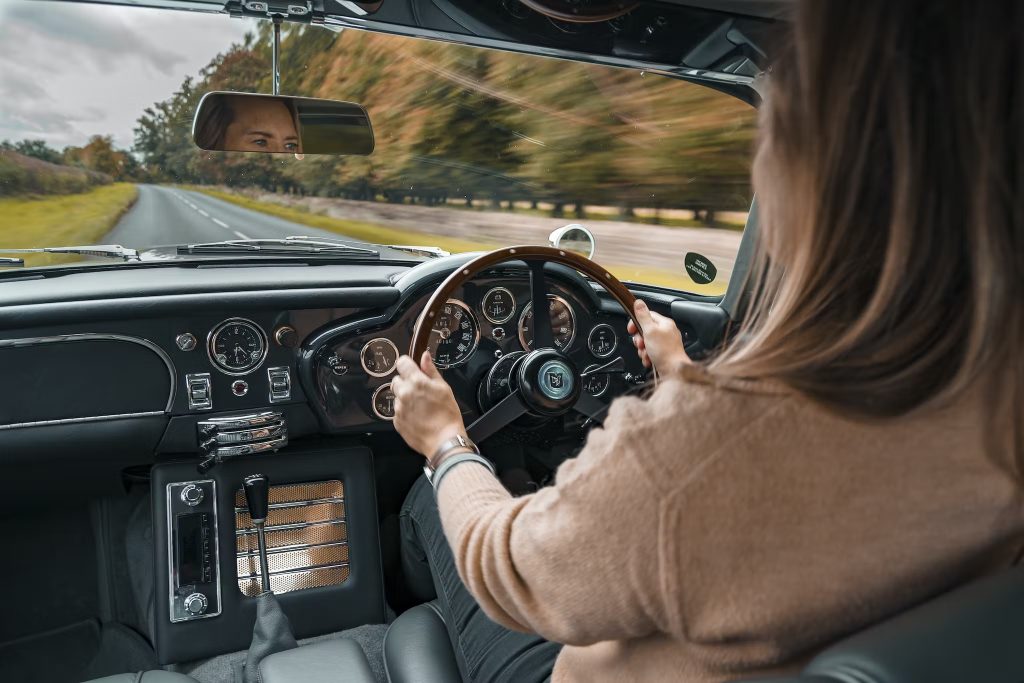
To re-create the DB5’s engine, Aston Martin Works ran one from the original car through a CT scanner, digitally slicing it in 1-millimetre increments to ensure it was replicated exactly. The only changes made were to address a cooling issue in the original head. Engineers understood that this new car would be driven in hotter climates than the Isles. Cooling wouldn’t be a problem for me, as the blustery October skies threatened rain during my afternoon tour. It would take me around the hedge-rowed countryside northeast from Newport Pagnell through Chicheley, a primeval village with a population of 134 and history stretching back to 1086.
Nervously dodging the occasional truck, which skimmed a hair’s breadth from the DB5’s driver’s door, I cruised in fifth gear between 2400 and 2500rpm, the DB5 innocently hitting speeds up to 80mph using what seemed like half of its torque and 282 horses. The engine purred, even above the wind noise in the cabin, which was to 1960s specification as well. The only thing it doesn’t have from the era is the old-car smell. In the DB5, you can feel every stone on the road through your hands and backside. You’ll also feel your shoulders and arms the next day, as turning requires muscle. At least there are electric windows, which made their first appearance for Aston Martin in the original 1964 DB5.
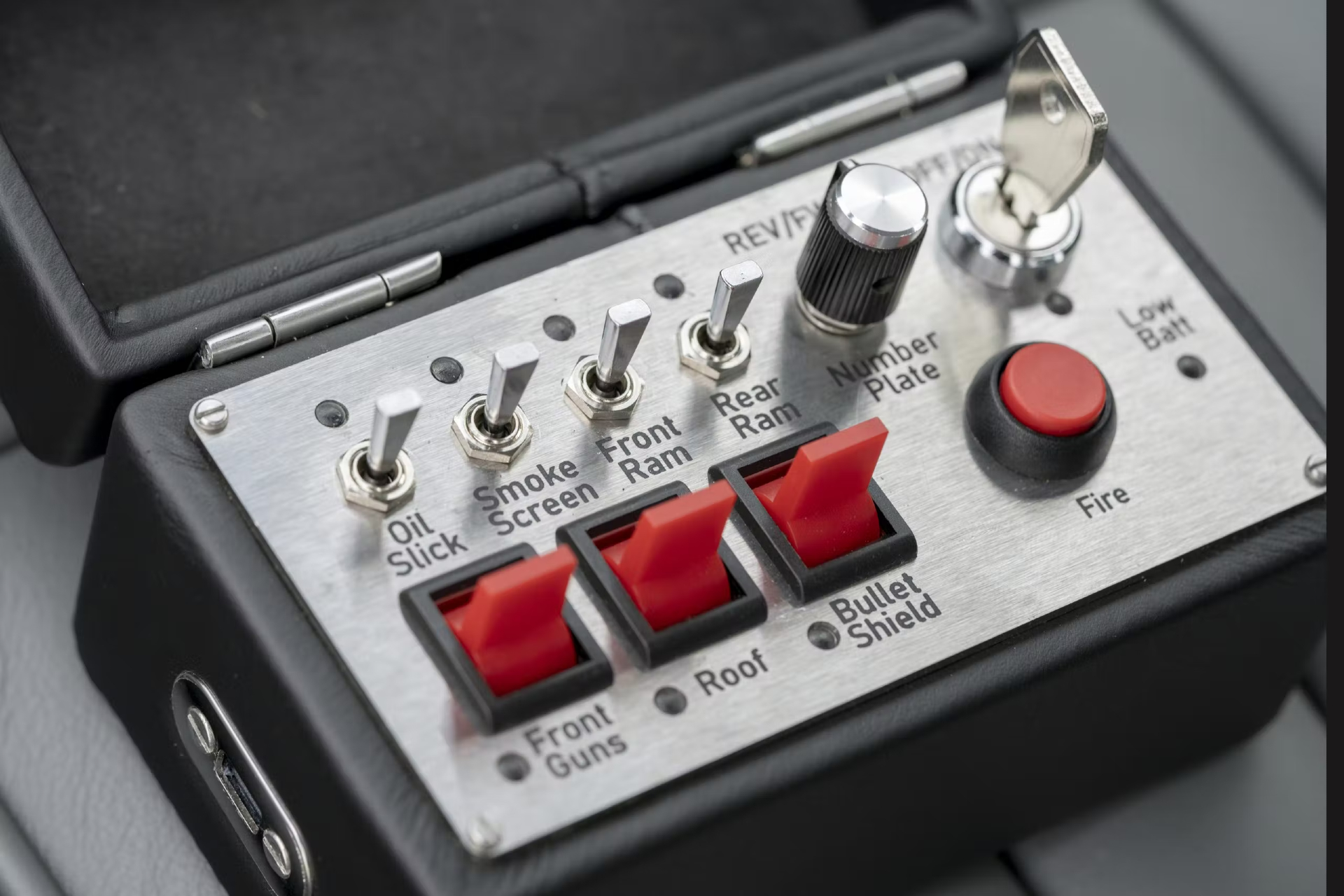
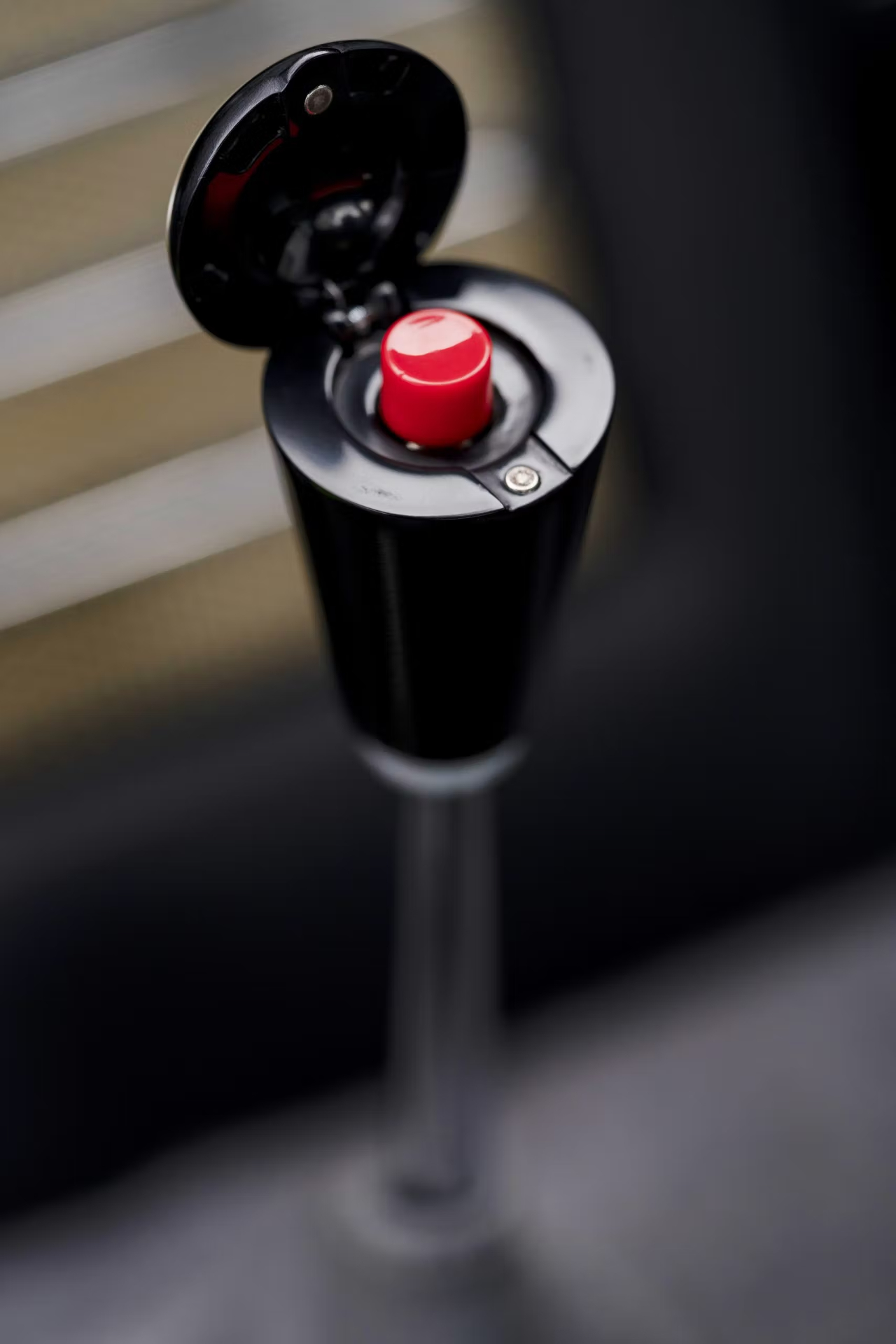
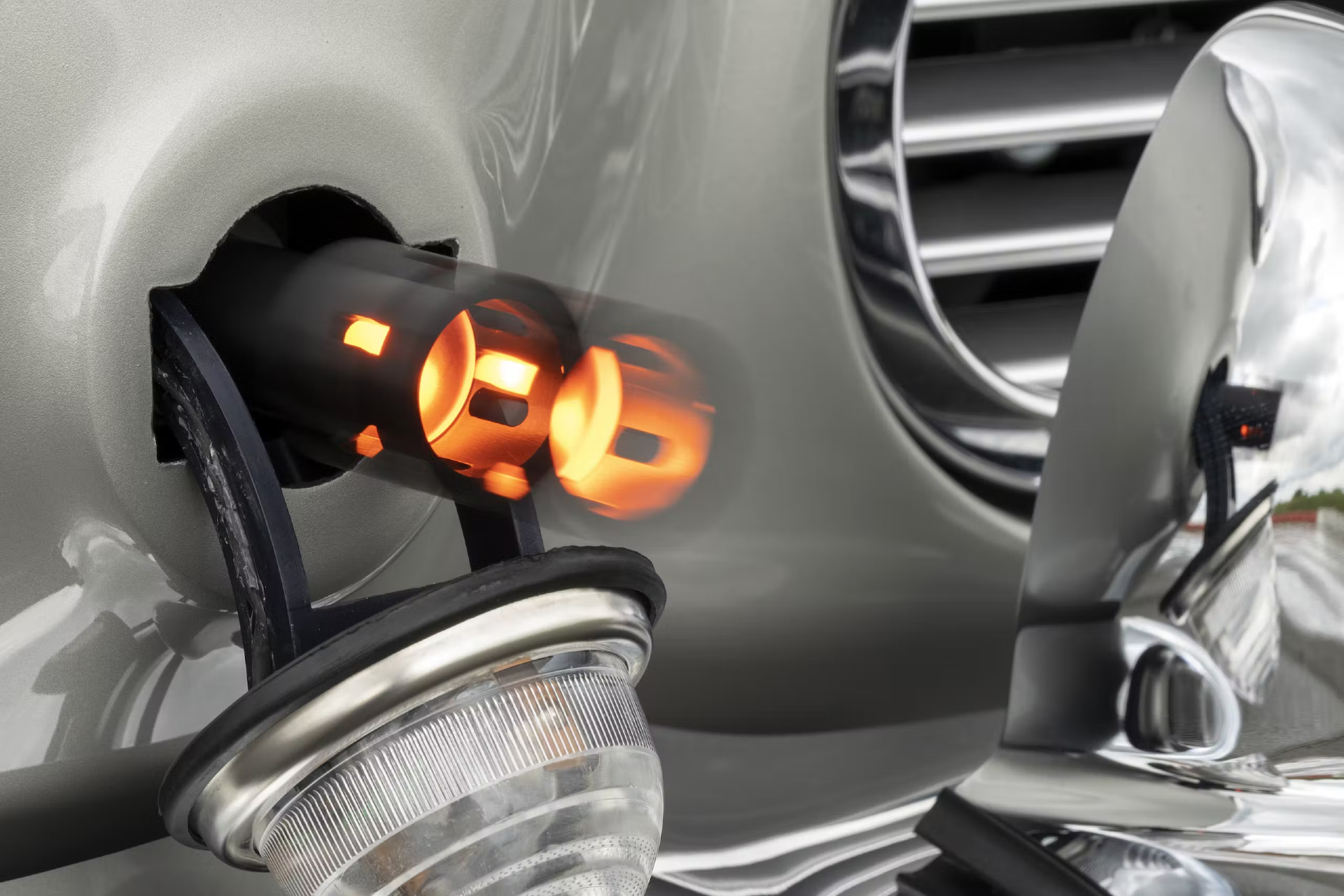
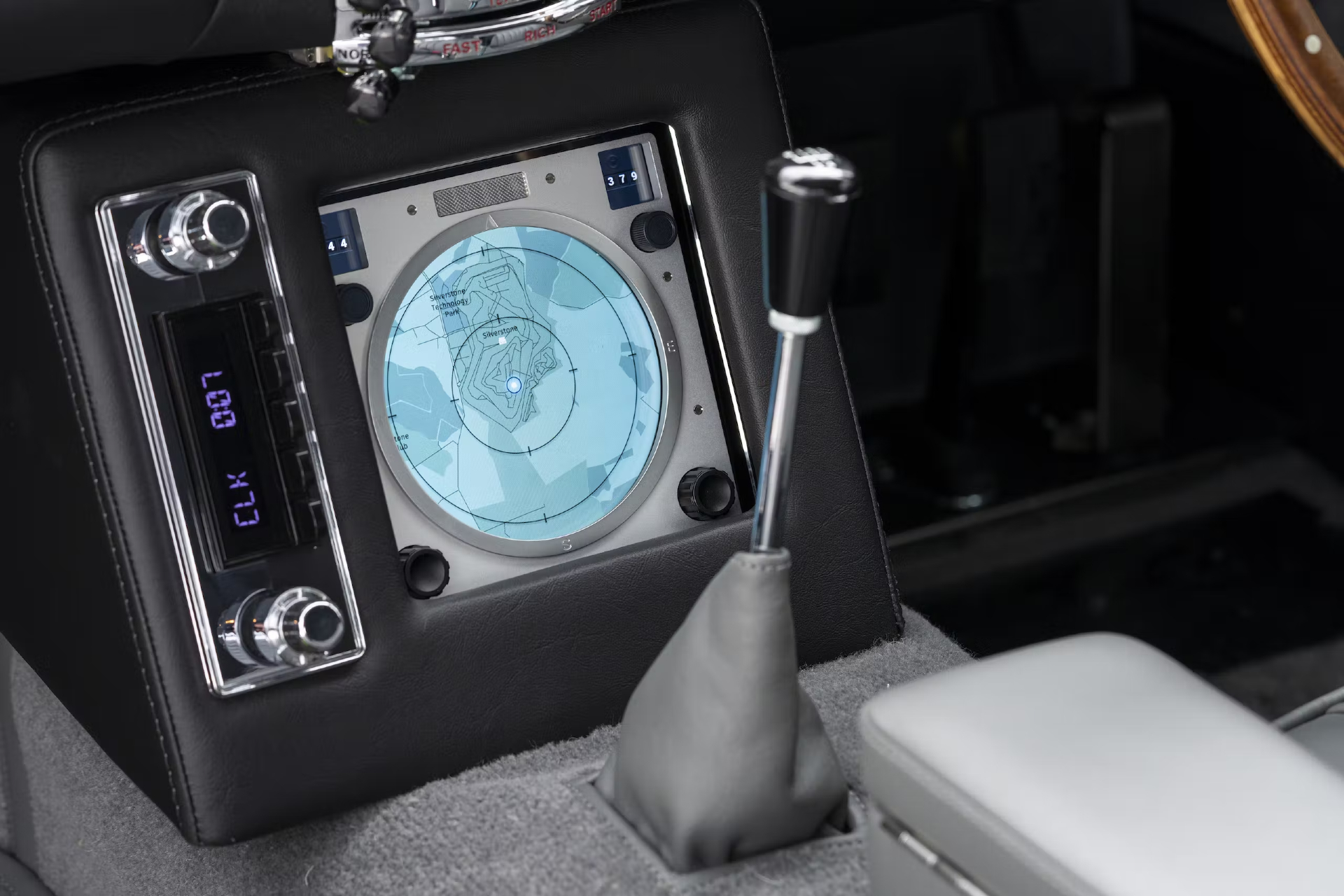
Before my afternoon drive, Paul Spires, Aston Martin Works president, demonstrated how to deploy the machine guns – or, rather, the metal rods that stealthily extended and retracted from behind the headlights. These are capped with flashing red lights at the “muzzle” and accompanied by convincing sound effects loud enough to startle the trousers off an unsuspecting bystander in line [the queue! Ed] at the fish and chips shop. The DB5 Goldfinger gets every spy gizmo that the one in the movie sported, with the exception of the ejection seat (they studied it but decided against it) and the devilishly handsome Sean Connery behind the wheel.
With the Bond-gadget remote control in hand, Spires was eager to show me the smokescreen feature until his phone rang. He pulled it from his pocket. It was the Earl of Snowdon, son of HRH, the late Princess Margaret – and nephew to Queen Elizabeth II. Spires thoughtfully hit the decline button, then continued telling me that the fan-assisted smoke mechanism on this car was far superior to the one in the movie. Even royalty deferred to Bond today.
Between the original production of the DB4 and DB5, Albert “Cubby” Broccoli, the producer of 16 Bond films before his death in 1996, first approached David Brown about using a car. Originally, Brown refused the request, feeling it wasn’t up to Aston Martin’s standards. Harold Beach, director of design for the DB5, hounded Brown until he acquiesced. Originally the car provided was an engineering prototype in red, but the producers didn’t like the way it looked on camera, so it was changed to Silver Birch. When principal photography wrapped, Brown didn’t think it would amount to anything, so the DB5 was stripped down to the bare metal and sold. The buyer had no idea he owned the original camera car until years later. A Bond DB5 built for Thunderball sold in 2019 for $6.4 million.
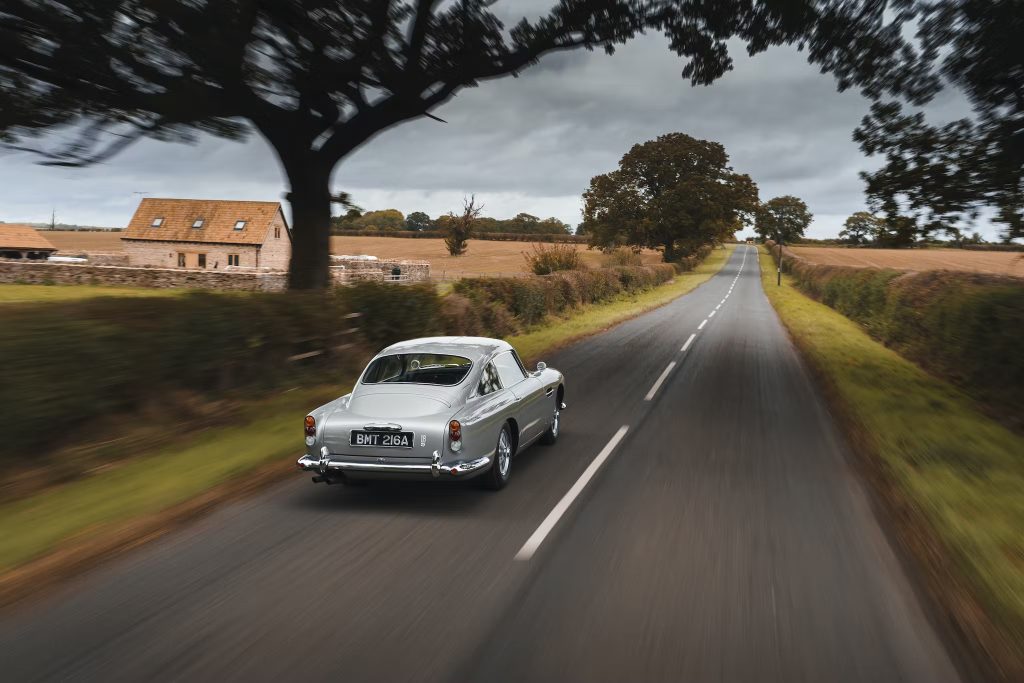
Much as I might have enjoyed the surrounding bucolic English vistas, driving required intense concentration. Though it’s technically a new car, the DB5 Goldfinger possessed a proper 1960s quality. Shifts in the original-spec gearbox were as smooth as you would expect with the rudimentary synchros of the era, meaning metal on metal. I did have to take care not to flip open the top of the slender shifter while upshifting and inadvertently press the red button that engages the car’s gadgets. Spy problems.
The DB5’s bottom-hinged throttle wanted a sure foot. The clutch wasn’t unbearably heavy, and it offered up a perfect engagement point. Girling re-created the disc brakes at the DB5’s four corners, and the Goldfinger glided along the pocked country roads on telescopic front and lever-action rear shocks and a mechanical limited-slip differential. It’s not a modern setup by any means, and there was opportunity aplenty to have the tail end of the DB5 squirm away from me around a sharp turn. When you see the DB5 sideways in Daniel Craig’s final Bond bow, No Time to Die, know that the stunt driver did not have to work too hard to achieve the position. One could easily get into trouble without intending it. How deliciously Bond-like.
If I never quite felt comfortable in the car, it was not because the DB5’s cabin lacked for room. The small dimensions of the coupé felt cozy without being restrictive. Rather, any anxiety was born of the knowledge that, as an American, I was driving a wildly expensive, limited-edition, righthand-drive car on the left side of the road. I didn’t want to be the one to bring it back with kerbed wheels or Mother Nature’s bramble pinstriping cut into its liquid paint. But in those glorious moments when there was nothing but open road before me, and no oncoming traffic accosting me, driving the DB5 made me positively giddy.
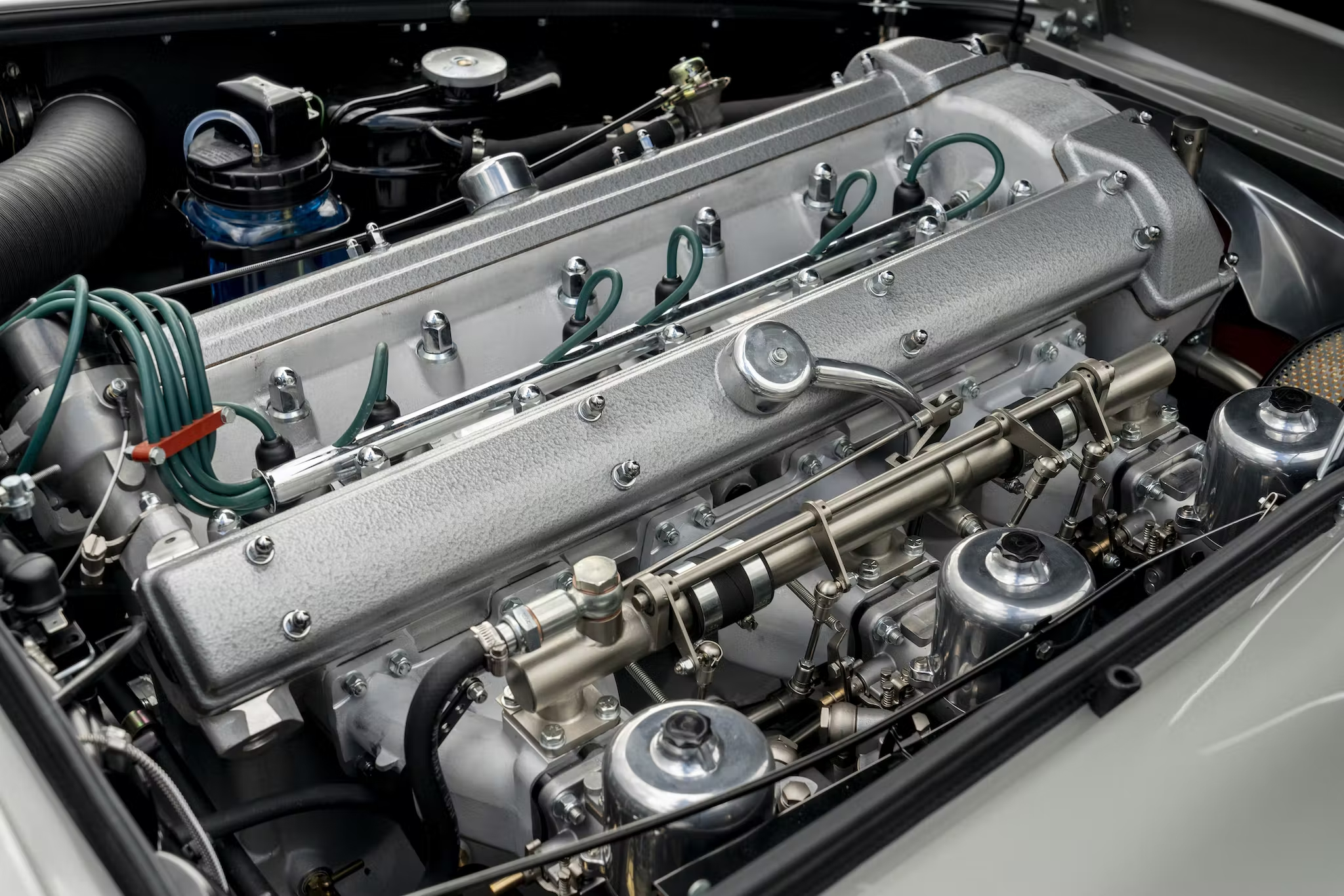
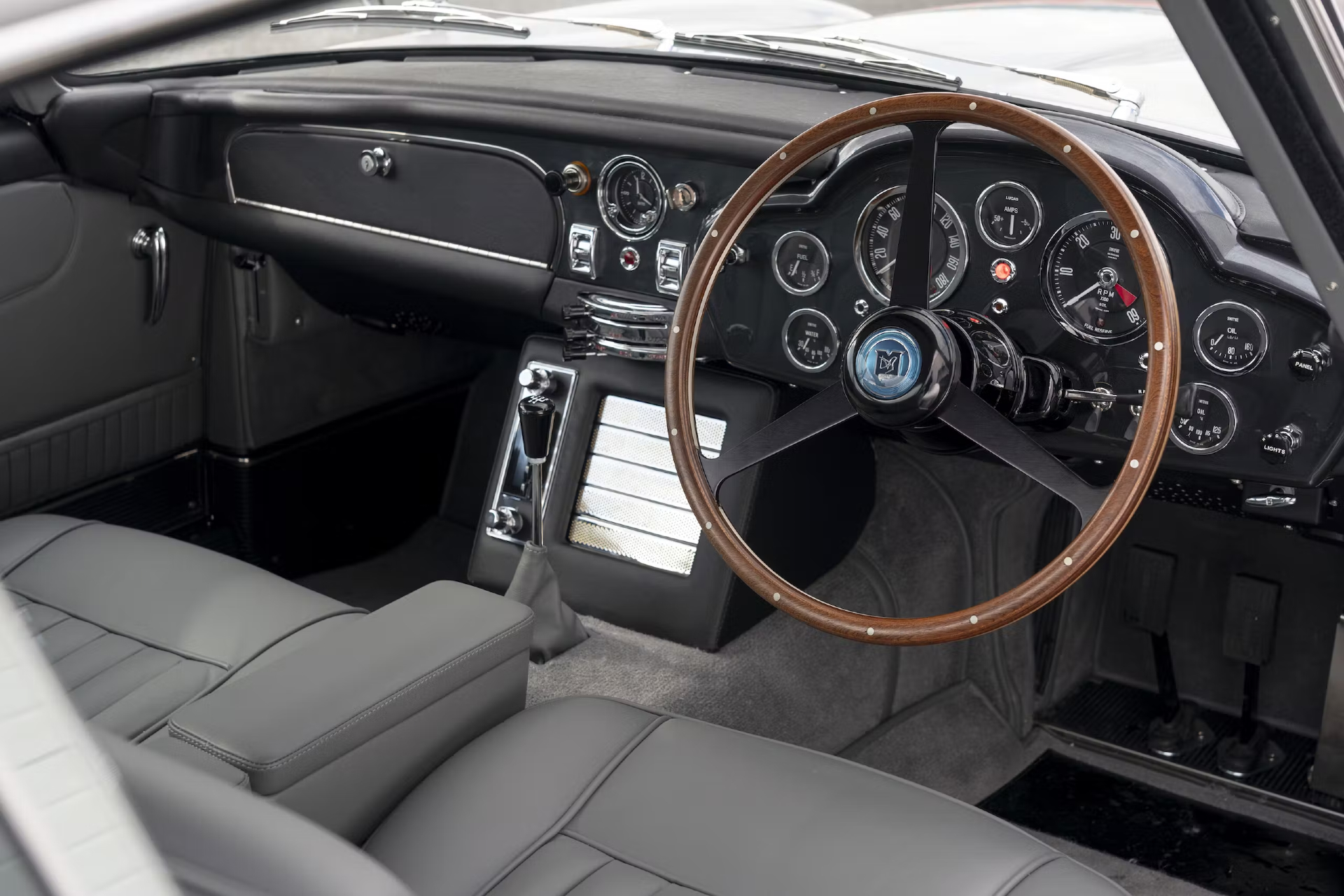
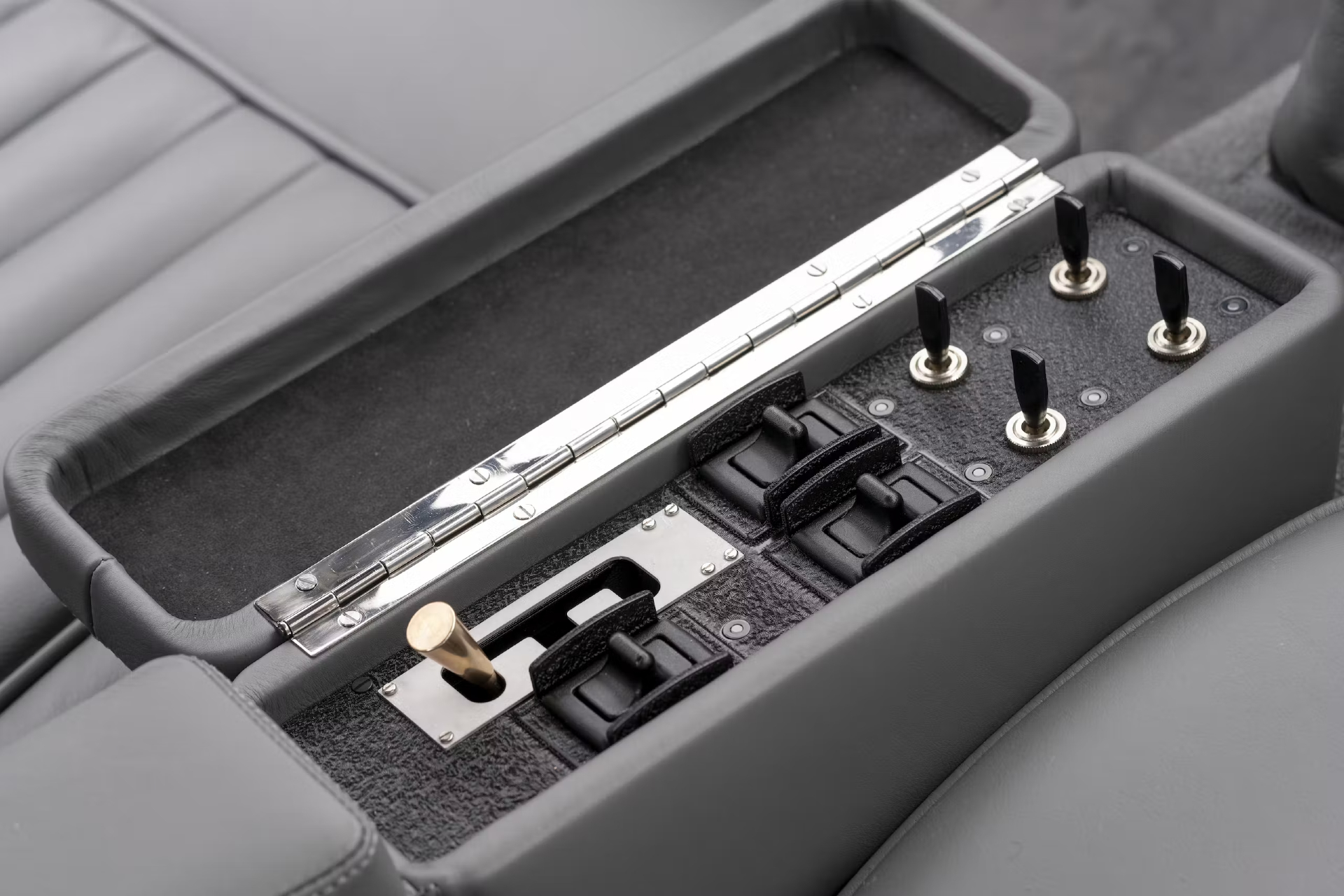
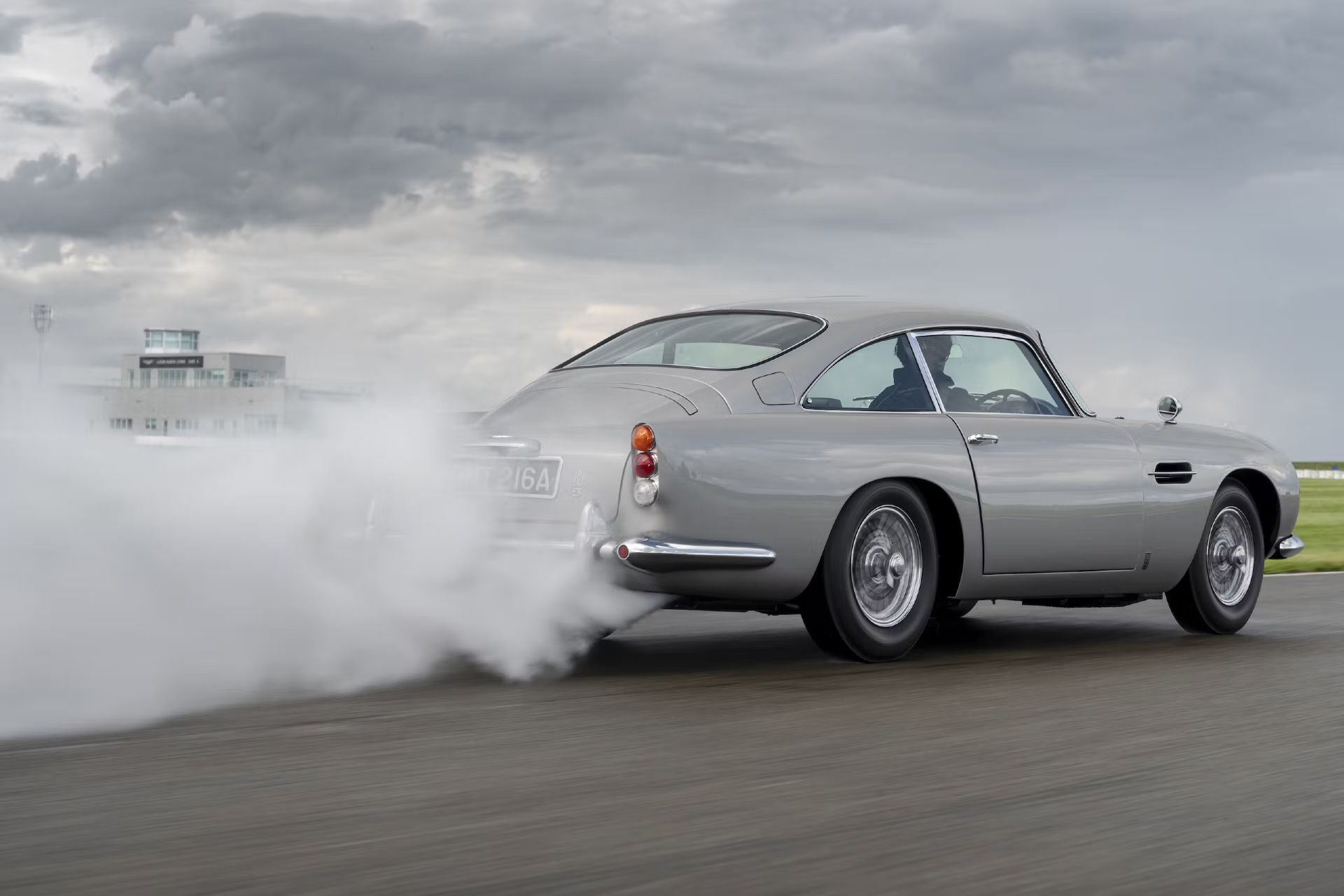
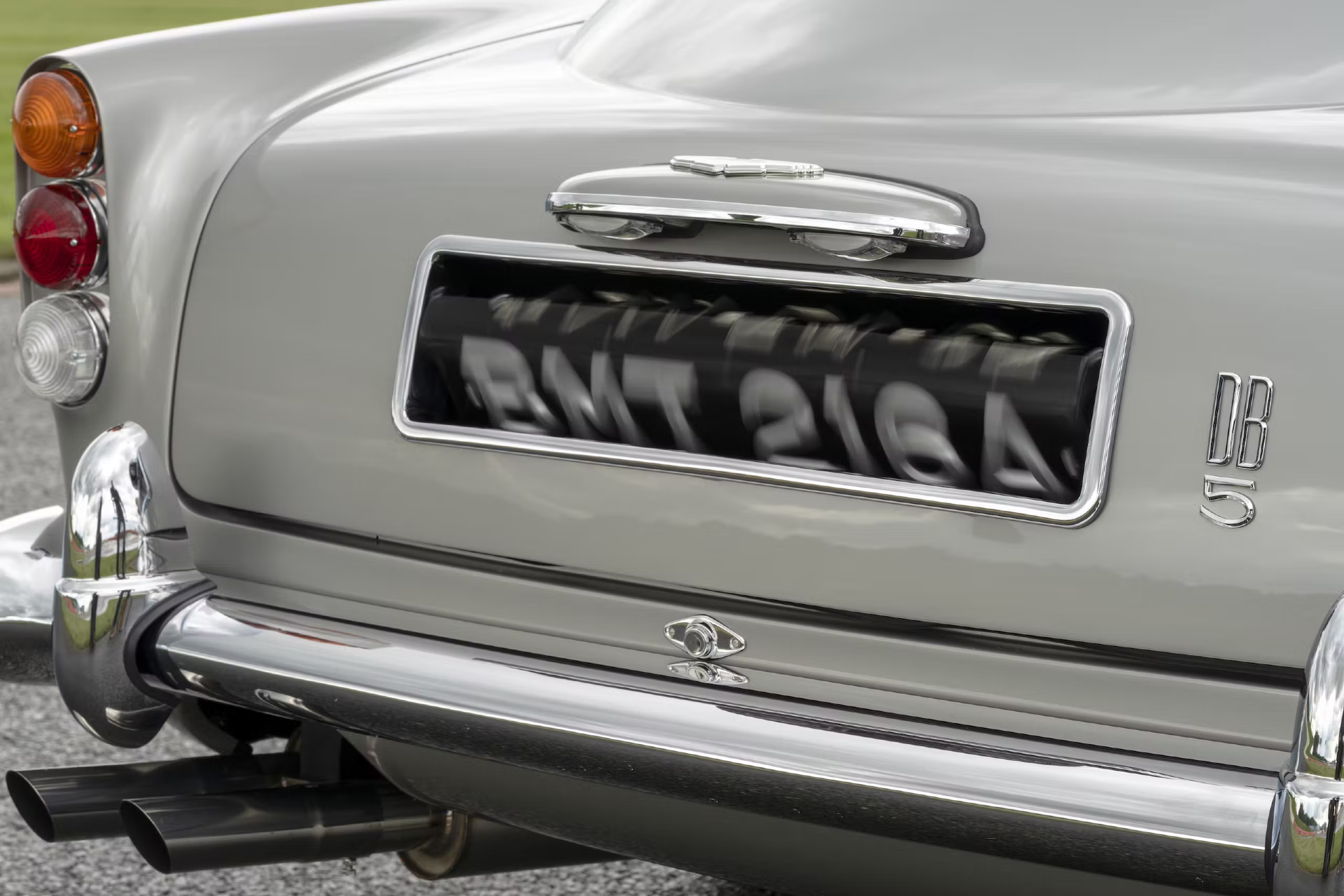
With its 2020 model year, the car doesn’t conform to today’s safety standards and is not grandfathered into licensing and registration restrictions. But the fact that it isn’t technically road-legal mattered not to buyers; almost all 25 DB5 Goldfinger cars have been spoken for. Indeed, all three continuation models produced by Aston Martin Works, including the DB4 GT and the subsequent DB4 GT Zagato, were quickly snatched up. Some customers own all three. “That triumph was the proof of concept,” Spires said matter-of-factly. If he has pride in the program, which he conceived back in 2017, he wears it as subtly as a conservative pocket square.
After almost two hours of driving, my arms began to ache from muscling the wheel. Reverse was no longer easy to find, the synchros uncooperatively grinding at my failed attempts. As much as I’d appreciated the opportunity, I knew I’d reached my limit. Spent, I piloted the DB5 back to Works unscathed, having bested that villainous duo of fatigue and driver’s error and gotten away clean. But for a few brief and splendid hours, it felt sublime to be the Bond girl who finally got behind the wheel.
Read more
Lending a hand at Aston Martin Works
Celebrate 60 years of 007 with 10 Bond cars on a budget
The Midas Touch: The true value of a James Bond car


